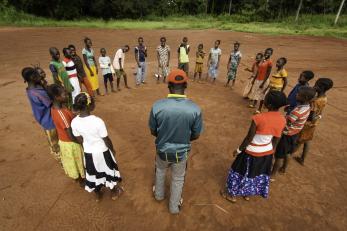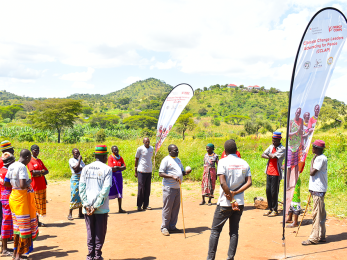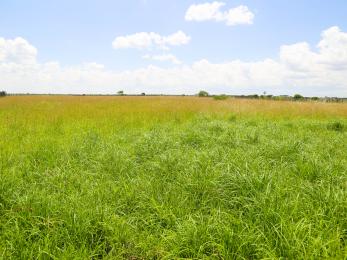Lessons Learned from our Stabilizing Vulnerable Communities Program in the Central African Republic

As the international community continues to assess the relative impact, cost-effectiveness, and contributions to stabilization of various interventions in the context of today’s global humanitarian caseload, the data presented in Mercy Corps’ new report should encourage sustained and increased investments in community-led conflict management and peacebuilding.
In January 2014, during the worst violence in the Central African Republic’s most recent civil war, Mercy Corps launched a unique humanitarian program in the country’s two most socio-economically vital cities, Bangui and Bouar. The program set out to help stem retaliatory community violence and rebuild social cohesion.
By August 2015, the results of the program were stunning — even to us.
Key Impacts:
- A 532 percent increase in community perceptions that conflicts are being resolved peacefully in their communities — from 13 in the baseline to 82.2 in the end-line.
- An 86 percent increase in the number of community members who trusted “the other” group — from 30.1 in the baseline to 56.1 in the end-line.
- 220 anti-Balaka fighters with ten commanders voluntarily disarmed in December 2014 to join community leaders and Peace Committees to support non-violent social change; and
- In Bouar, 26 youth and 26 community leaders representing over 39,205 minorities signed a reconciliation pact committing to non-violent conflict resolution in forestalling discrimination, safeguarding minorities, and facilitating the (re)integration of Muslim traders into the economy.
This empirical and quantified evidence affirms that supporting conflict management and peacebuilding activities during a complex crisis can both stem immediate violence and address the underlying drivers of violent conflict, thus laying a foundation for more swift and sustainable post-conflict recovery.

